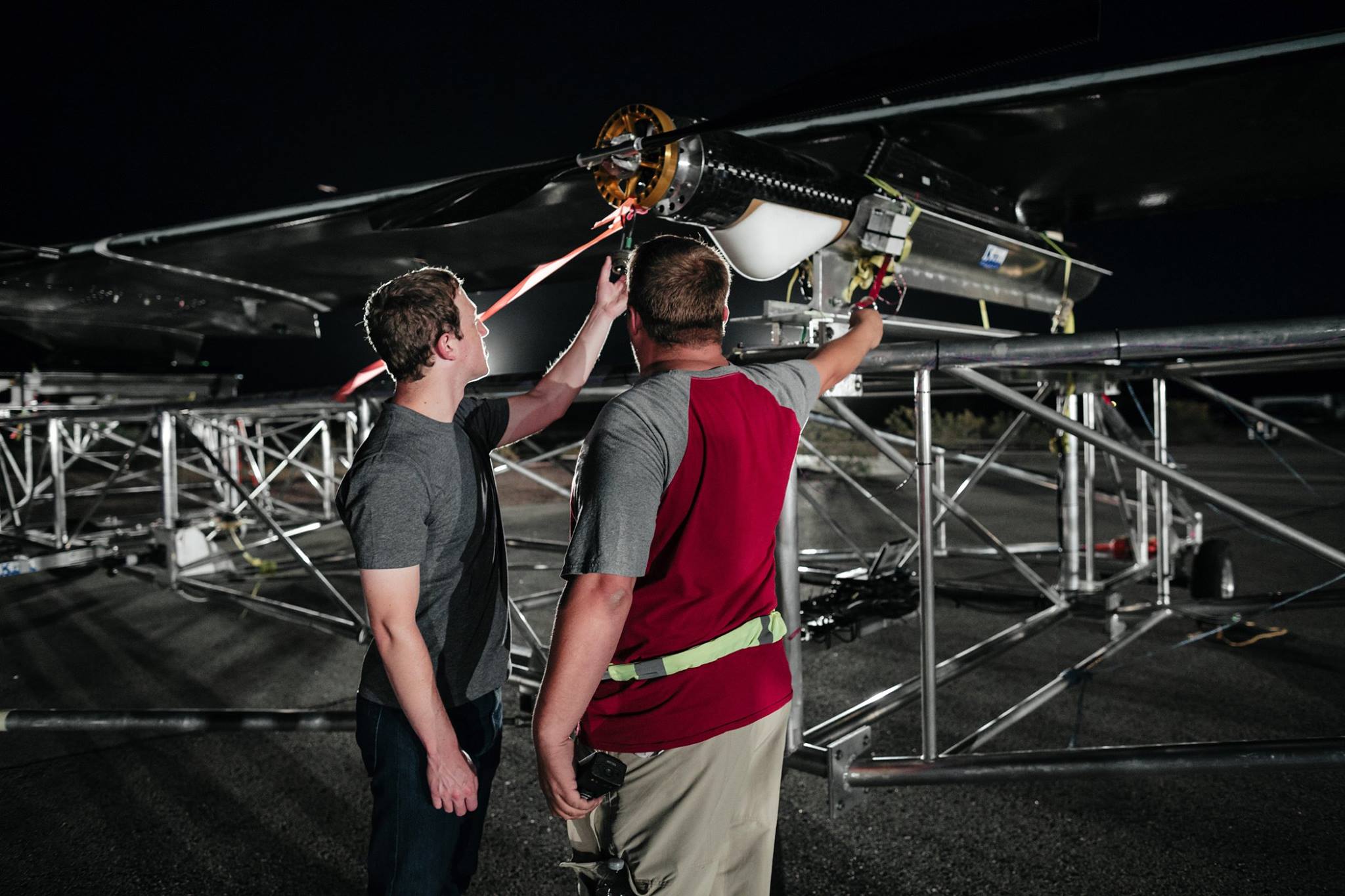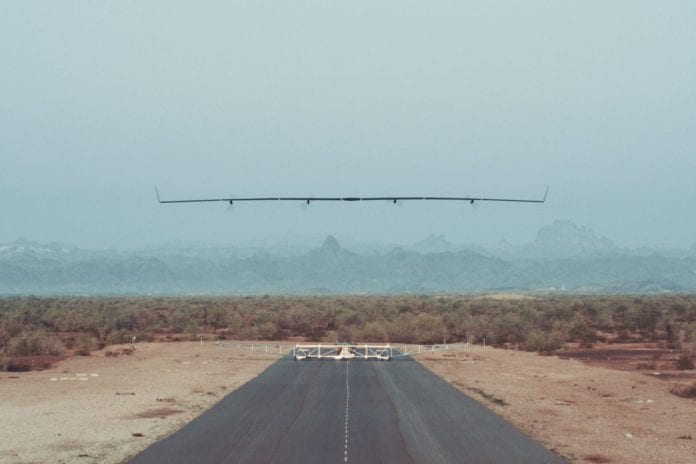Aquila is the name Facebook has given to its solar-powered plane, which boasts a wingspan longer than that of a Boeing 737, and is designed to beam broadband internet access to underserved populations around the world.
The internet and social media giant completed the first test flight on June 28 out of a facility in Yuma, Arizona. Facebook CEO Mark Zuckerberg said the test flight was a culmination of two years of engineering work.
“Seeing Aquila’s first flight meant waking up at 2 a.m. and flying down to the Arizona desert before sunrise,” Zuckerberg posted to his Facebook wall. “Watching Aquila lift off into the air was an emotional moment for everyone – especially the team that has poured two years of their lives into this project.”

Now, he said, there are numerous problems that still need to be solved including further reducing the weight, energy efficiency, control mechanisms, further reducing speed, altitude, load and communications.
“As big as this milestone is, we still have a lot of work to do,” Zuckerberg wrote. “Eventually, our goal is to have a fleet of Aquilas flying together at 60,000 feet, communicating with each other with lasers and staying aloft for months at a time – something that’s never been done before. To get there, we need to solve some difficult engineering challenges.”
Growing from its social media roots, Facebook is making major moves into telecom territory through its involvement in the Telecom Infra Project, as well as broadband-oriented projects like Aquila. From the perspective of a social media giant, the only way to expand its market cap is to make services available to currently unconnected people, which means extending some sort of broadband infrastructure. Facebook is also the driving force behind Free Basics, which allows for zero-rated access to some websites, but not all. Because of that, regulators in India shut the service down for running contrary to net neutrality principles.

Facebook solar plane to bring broadband to the world
ABOUT AUTHOR
